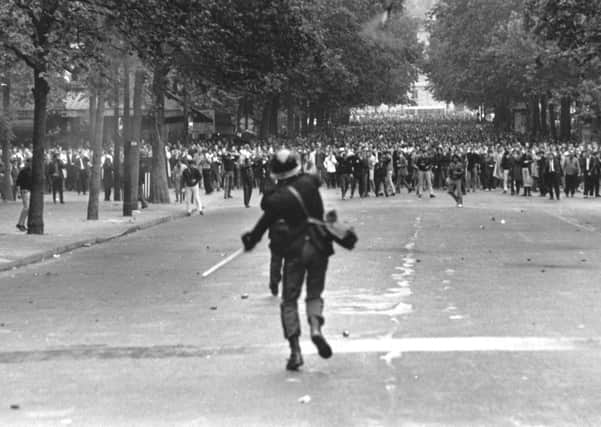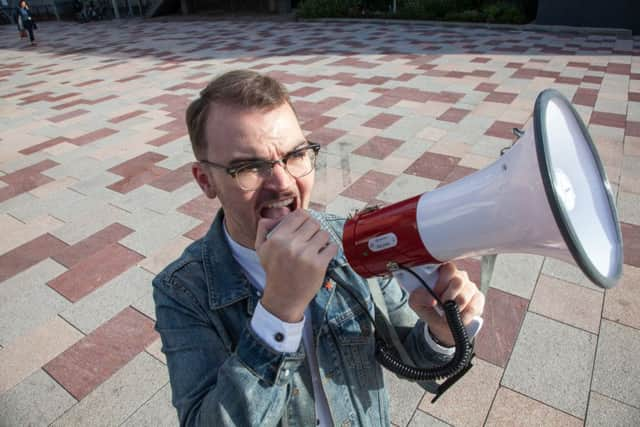Students ditch '˜spirit of 68' to learn strategic art of persuasion


But today’s students, in contrast to the generation which brought the French economy to a halt 50 years ago, are being taught a different strategy to bring about change. At campus activist workshops they are learning “power mapping” skills to identify those who wield the real influence in organisations and how to lobby them effectively.
The new approach has been instigated by Liam McCabe, the president of the National Union of Students Scotland, who swept to power in elections in March with a manifesto which included the so-called “power-up, power-down” approach.
Advertisement
Hide AdAdvertisement
Hide AdMcCabe, 24, said the change in tactics is necessary because the political landscape has changed radically since the 1968 student protests in France and the UK’s bitter trade union disputes such as the miners’ strike of 1984-85.


But he acknowledged that students would not abandon direct action where necessary, as shown by their recent support of college and university lecturers.
“If there was ever an attack on free tuition in Scotland you’d probably see NUS not only mobilising but mobilising successfully,” he said.
McCabe, from North Lanarkshire, studied for a social sciences degree at Glasgow Caledonian University and completed a masters in public policy at the University of Strathclyde. “Over the years there has been a decline in collectivism across the country,” he said. “There were so many prominent defeats, including the National Union of Mineworkers. Once you took down the biggest unions there began to be a sense of hopelessness and a feeling of being rebuffed and ignored.
“Our call to activism is about empowerment and political education. This means equipping students with the knowledge and skills not just to understand the political environment but to talk to stakeholders and allies, working with them to make change a reality.”
These life skills would help many students deal with issues such as zero hour contracts and housing problems – which threaten the ability to study, he said.
Mary Senior, Scotland official for the University and College Union, representing over 120,000 lecturers and academics UK-wide, agreed that a more sophisticated approach should be combined with direct protest. “The support UCU received from students during our pensions dispute and the 14 days of strike action in February and March was phenomenal,” she said,
“However, as UCU’s dispute progressed, we also needed negotiators and experts to challenge the employers on the detail of the pensions valuation, and argue the union’s case. Cool heads and minds complemented the direct action of the strike days.
“It’s good to know that the NUS is providing wide-ranging development activities for students, to empower them to navigate the diverse situations they will find themselves in throughout life.”